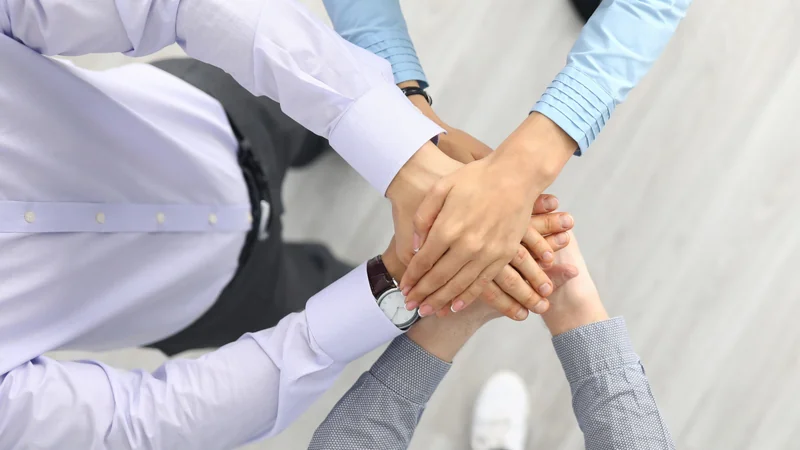What Makes a DAO Trustworthy?
DAOs, decentralized autonomous organizations, date back to 2015/2016 with the creation of Slock.it, a German start-up that soon became known as ‘The DAO’ or Genesis DAO. Created to support future Web 3.0 projects, The DAO was built on the Ethereum blockchain and its native token $TheDAO was sold, which allowed members to participate in its ecosystem and pitch or vote for projects.
Despite The DAO’s initial success, raising over 12.7 ETH (~$150M at the time), it was quickly hit by a hack that allowed funds to be drained from the project by a hacker with an estimated $70M stolen. To counter this solution and save its funds, The DAO entered into a hard fork, invalidating certain transactions, and returning the Ethereum network to before the attack happened.
Since then, much debate has taken place as to whether a hard fork was the correct solution or if a soft fork that invalidated the hacker’s ETH would have been a better option. It has also raised the issue of how trustworthy DAOs are to begin with.
Trust and trustlessness
DAOs are decentralized autonomous organizations that utilize technology, such as blockchains and smart contracts to operate in an autonomous way. Theoretically, they cut out intermediaries, such as banks and lending providers, and connect like-minded individuals together in a decentralized network.
A DAO-based platform aims to create a trustless system in which members of the DAO don’t need to have trust for each other or a trusted third party, such as a notary, bank, or similar organization, to guarantee its functionality and the fulfillment of its conditions.
Instead, a DAO uses algorithms based on smart contracts (agreements) that initiate when certain conditions are met. For example, when all members of the DAO agree and vote on a particular protocol, say, to purchase a piece of intellectual property (IP) that meets the aims of the DAO for a certain price on a particular date, the DAO does this autonomously.
DAOs, by their nature, can reduce corruption and encourage equality. However, the concept is in its early stages, and as more DAOs emerge, its benefits and pitfalls will become more apparent.
While DAOs allow individuals to come together to work on common aims and can support for-good projects, and a trustless system offers benefits in tackling corruption, the Ethereum DAO hack has made people wary, the technology is still in its infancy, and cryptocurrencies, which are closely tied to DAOs, can be volatile in their nature.
When to trust a DAO
As with all new technology, DAOs have some way to go before they can become an established alternative to traditional organizations. However, they have proved an interesting and promising platform on which to build projects.
There are some criteria for choosing a DAO to join and noticing DAO red flags. No one can ascertain for certain how effective a DAO will be. However, to determine the authenticity of a DAO, the following factors come into play:
- Strategy: This should include the basic information about the DAO and why it exists along with its aims, purposes, strategy, and whitepaper. This is an indicator that work has been put into creating the DAO and how involved the team is in the project. While very new DAOs may lack information, this does not necessarily mean that they are untrustworthy, and additional information may appear later.
- Team: Like any real-world business, trust is earned. Exploring a DAO’s background and the team behind it can give a potential member an idea of how trustworthy the DAO is.
- Token/coin credibility: The DAO’s monetization strategy and whether or not the DAO’s token is backed by real-world assets are both integral to trust. This can be done through various crypto sites and online reviews.
- Protocol: The DAO’s protocol, how decisions work, and how the DAO is governed can give insight into the trustworthiness of the DAO overall. Does it embody the aims of a decentralized organization or is it ‘raising funds’ without any member input?
- Community: Often, DAOs are social organizations that use a variety of platforms to connect with their members and potential investors. Active and transparent DAOs are often happy to post at length about their activities and connect with the member group. This is often done via platforms such as Discord.
DAO red flags
Although there are many genuine DAOs out there, there are some fraudulent organizations that aim to profit off the back of new technologies. These are some of the red flags to watch out for:
- Poor-quality website: Like any genuine business, a low-quality website with little information can be a sign that an organization is a scam. While there is always a chance that the DAO has just been set up, if it has been around for a while, this can be an indicator of a scam.
- Lack of access to information: If a DAO requires a payment before releasing information or none exists, this may be an indicator to stay away.
- Low online ratings or criticism: “Just search for it” may seem like simple advice, but a straightforward search can be revealing as to whether a DAO is authentic or not. Due diligence can be informative about the DAO and its digital footprint. Resources such as the data analytics site DeepDAO may also be good places to start.
Like any type of organization, some DAOs are trustworthy, and some are not. Before deciding on whether or not to get involved in a DAO or support one financially, it’s essential to conduct background research and get informed about the DAO, its aims, and its community.



